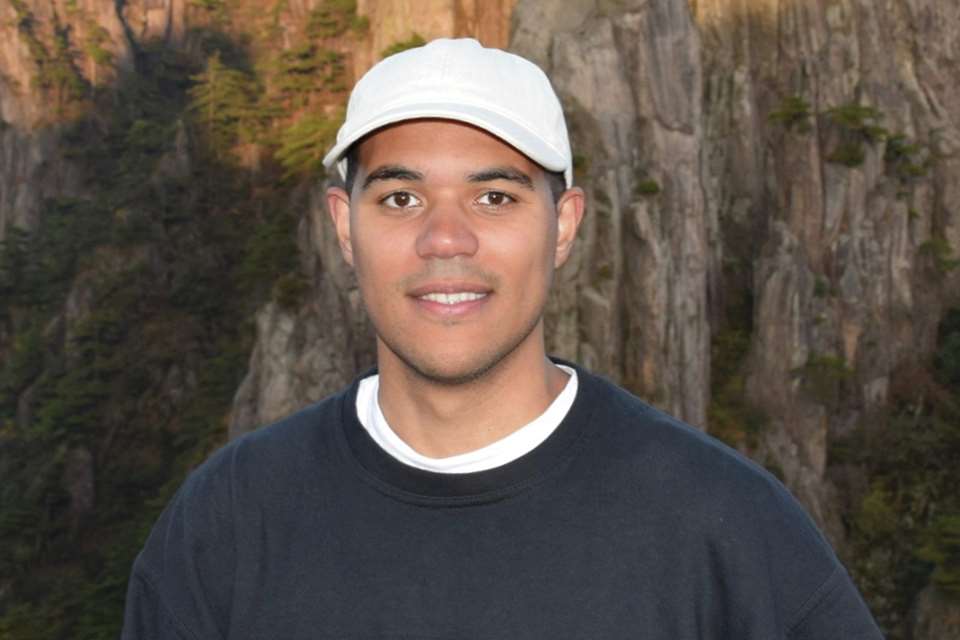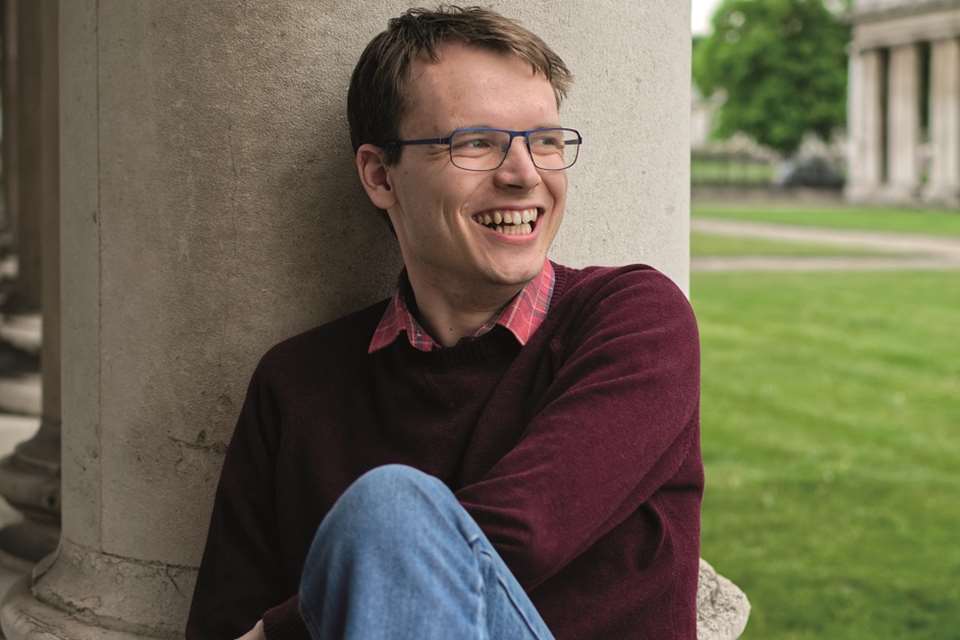Grace-Evangeline Mason - O Sapientia
Monday, October 16, 2023
A judicious use of effects and expressive textures enhances O Sapientia, Grace-Evangeline Mason’s choral setting for Advent. She talks to Matthew Power

Credit: Mark Mason
Though still in her twenties, last July Grace-Evangeline Mason celebrated her third BBC Proms premiere, Ablaze the Moon, a five-minute work for orchestra which received plaudits from major newspapers. I imagine the excitement of a premiere on that scale never diminishes. ‘Absolutely. The thrill of being part of that Prom atmosphere… there’s nothing like it, and it’s just as exciting as my first premiere was.’ What form does the piece take? ‘Conductor Mark Wigglesworth had suggested commissioning a short concert opener and I needed a concept that would get the music over fully in just five minutes. The piece is inspired by a poem called “Tonight” by the American lyric poet (my favourite) Sara Teasdale [1884-1933]. I love the imagery she uses in that poem and I wanted to depict that scene in a non-programmatic way, and to have a similarly ethereal ending.’
Growing up in a non-musical family in the West Midlands, Mason had a craving for music from an early age. Taking trombone lessons through a local council scheme, she soon began to experiment with composition. ‘It was just something that I did, I didn’t know that you could be a composer.’ With this revelation, at the age of 17 she applied to the junior department of the Royal Northern College of Music. She was instructed to bring a portfolio of compositions to her interview. ‘I didn’t realise they meant your three best works – I brought a pile of everything I’d ever written and put it on the desk.’ Seeing what Mason had achieved without any tuition was enough for her to gain a place there with Emily Howard as her teacher. Undergraduate studies followed with Gary Carpenter. The opportunity to hear her music performed frequently was a formative experience: ‘It’s not possible to put into words how important that is to a composer, to hear what you’re writing lift off the page.’ She learned different things from both her teachers. ‘Emily helped me come to terms with all the aspects of being a composer, of seeing the structure, the big picture. Gary taught me the detail, how you express your ideas on the page with the simplest clarity so that it’s not overcomplicated and takes less rehearsal time. I still hope I’m achieving that.’
Continuing to a Master’s degree at Somerville College, Oxford, the professor she credits with imparting the most to her there is, not for the first time in this series, composer Robert Saxton. ‘The way he can go over to the piano and demonstrate anything, or whip interesting scores off the shelves to explain something… When I brought the music that I was writing, he would look into it and pull it apart in a way that I hadn’t been able to see myself.’
Now completing a doctorate at the Royal Academy of Music, what has Mason focused on? ‘It’s about my love of mixing extra-musical elements as inspiration through my composition process. It has allowed me to explore everything I am already doing, but from a different perspective – like having a bird’s-eye view.’
Dating from 2016, Mason’s chamber opera The Yellow Wallpaper tells a story, by the American writer Charlotte Perkins Gilman, first published in 1892. Mason uses strings expressively with glissandi and melodic fragments forming a backdrop to the wide intervals and recitative-like vocal writing which gave a foretaste of her emerging style. New Music composer Jasper Dommett described how opera is often seen as a pinnacle of achievement [C&O September/October, p.33] and how that can be problematic. What does the genre mean to Mason? ‘Back then I hadn’t been to many operas… now I love opera passionately. I had been introduced to the story of “The Yellow Wallpaper” years before. I started to have this vision of writing a libretto and the music for an opera… I even tried to talk my dad into making a stage set for me – that’s how much I longed to make it happen! I wasn’t concerned with how it might be received, I just wanted to get the story out there.’ It came together and was performed by the Helios Collective at English National Opera’s Lillian Bayliss Centre. Mason was struck most by the collaborative process. ‘Working with the director and singers, having a whole roomful of people discussing that story I loved so much and bringing their own ideas to it… the lighting designer had gone through the whole score and come up with ways to convey it… that completely blew my mind!’
Choral music is a genre that Mason intends to return to often. Her catalogue to date includes: Stars Above, Earth Below (2019), words by Sara Teasdale, for the BBC Singers; Magnificat (2019), an eight-part a cappella setting for Chelmsford Cathedral; Mahler’s Letters (2020), a four-movement setting for the Royal Liverpool Philharmonic Chorus; A Memory of the Ocean (2023) for choir, piano and cello, in three movements which can be performed separately.
In Her Own Valley (2019), for the combined choirs of the Liverpool Philharmonic, involved 200 children and teens from the age of seven up, and tells the story of the Industrial Revolution in north-west England. ‘I wanted to make sure the piece was enjoyable for them, challenging on a suitable level to enable them to feel confident and really enjoy the experience. That’s so important because children are the singers of tomorrow.’
For her New Music piece, we gave Mason the remit of writing something suitable for Advent. This setting of O Sapientia sets the Latin text of this great ‘O’ antiphon (O Wisdom). ‘Talking to Joe [Fort] about it, he suggested the antiphons. Also, I love them in both Latin and English and I’d love to set some more. They are quite direct and you can thread the words on top of each other in ways that always seem to make sense. When you read the text, it really feels as if the words want to be sung.’
Although there is plenty of divisi, parts are often sustained and material repeated, so it’s likely to be less challenging than it first appears on paper. There are judiciously sparing choral effects too: whispering, freely repeated sung phrases, humming and mirroring vowel sounds in the solo line, creating something like an echo chamber. ‘I wanted it to have a sense of freedom, both for listeners and singers. The words “O Sapientia” are an expression which I wanted to [emerge from] the texture. It definitely has modal inflections and it’s quite accessible tonally. The piece is built on texture, starting with an atmospheric, static soundworld. Then these “O Sapientia” [phrases] break through with a kind of foreshadowing. Later, the lower voices carry the main texture and the upper voices have that freedom, before the piece returns to the stasis of its beginning.’
Following recent national premieres in the Netherlands and Australia, Mason considers the horizon as she completes her studies. ‘We have to keep an eye on music education and make sure that young people have access to learning an instrument in school. I certainly wouldn’t be here if it wasn’t for the support of those council music lessons. My future goal is to write a full-length opera. I’d also like to write concertos for different instruments, and more choral music of course. Meeting new people to collaborate with, hearing and interacting with new art... I’m never quite sure what the next thing is going to be, and for a composer, that’s exciting.’
Download the score
The score for O Sapientia, commissioned by Choir & Organ in partnership with the Choir of King’s College London and supported by PRS for Music, was available to download and perform until 30 April 2024. Visit our New Music section to see our latest scores.









